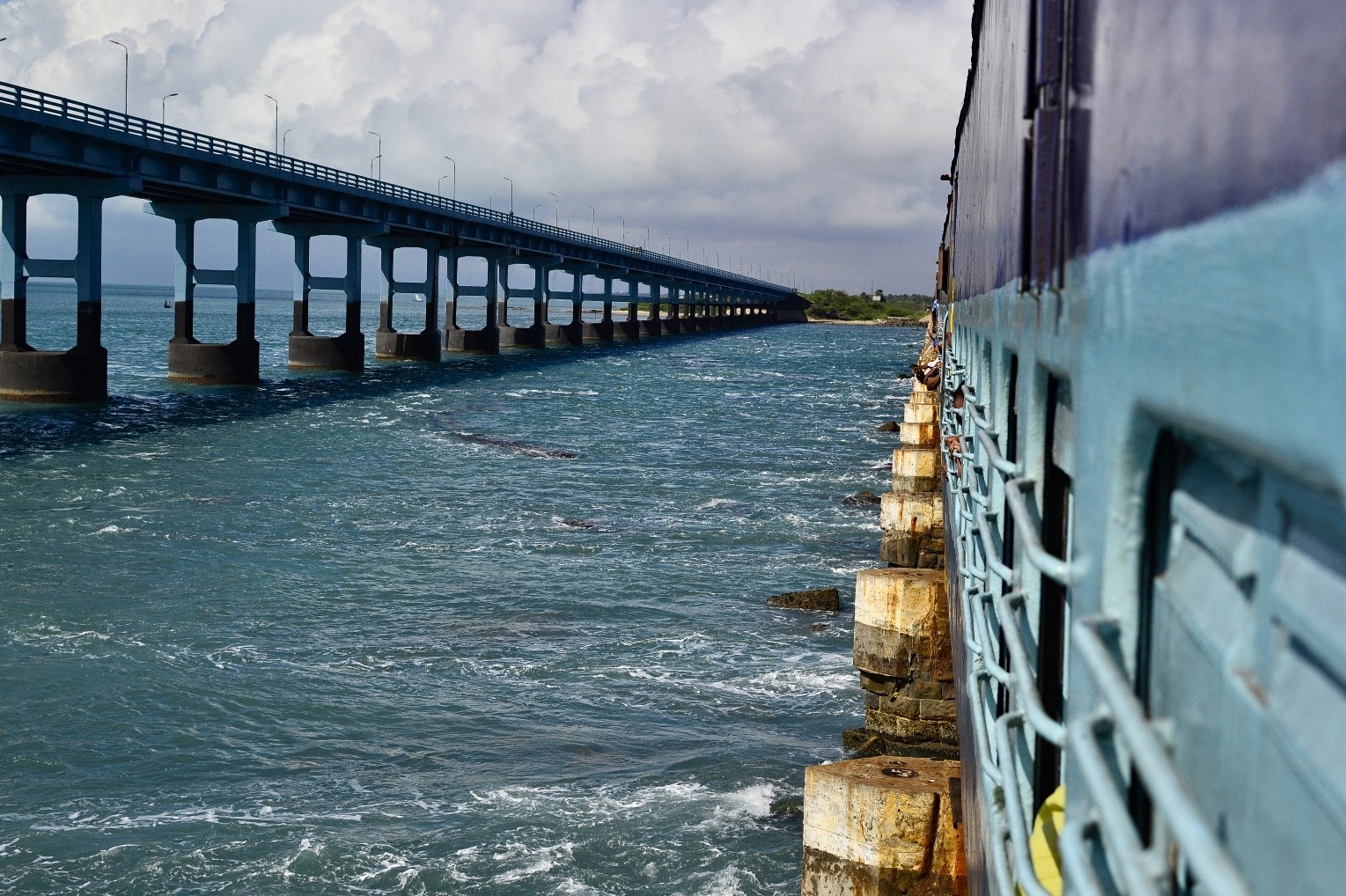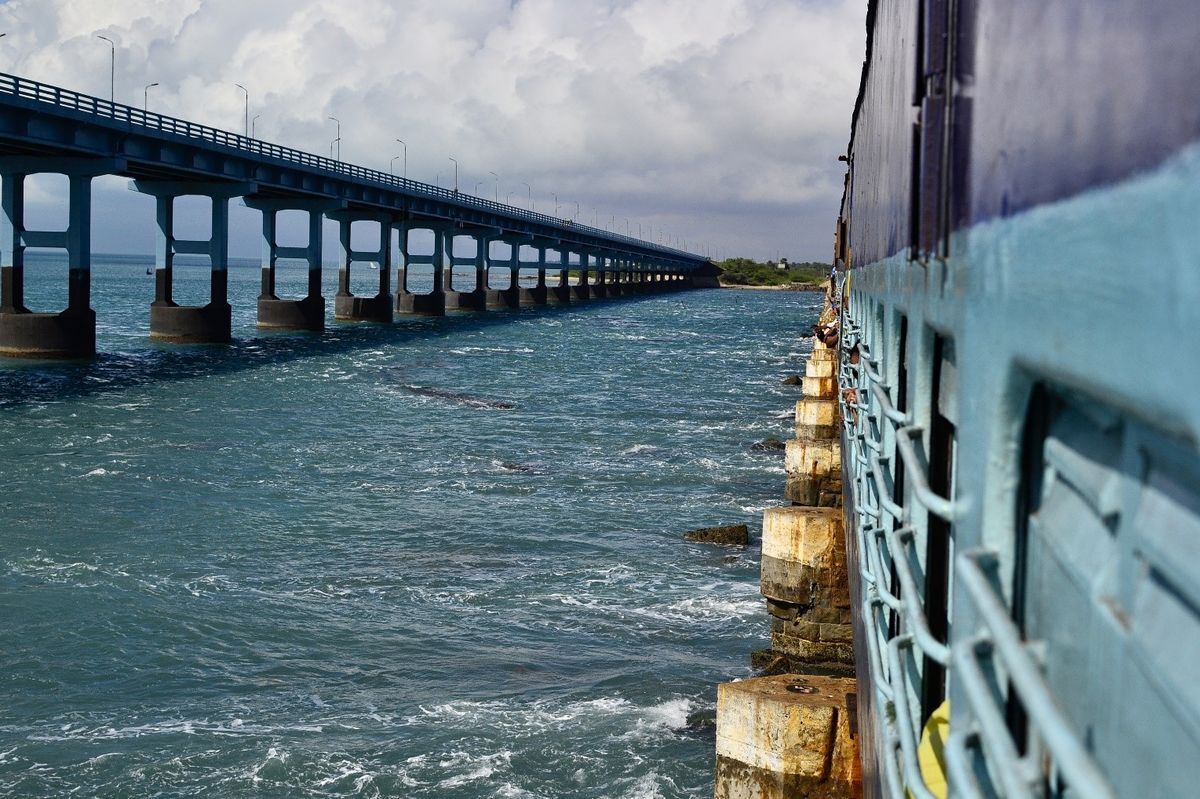
Summary
As the world focuses on “building forward” with a view to recovering from the pandemic and the economic crisis, speakers at the latest Europe-China Dialogue debate entitled “Water, road and rail: connecting Afro-Eurasia” discussed how to bring Europe, Asia and Africa closer in terms of connectivity and increase collaboration between the three continents.
Zhang Xiaotong, Professor at Fudan University, underlined the need to dispense with the “power-oriented element” (00:07:38) and embrace collaborative connectivity between the regions, explaining how this can ultimately lead to what he termed “maximal connectivity”.
“Only by doing that can we have more success stories,” (00:08:35) he said. “Maximal connectivity would be very inclusive, collaborative, market-based and sustainable, and there’s a lot of room for collaboration between the US, China, the EU, India, Russia and other stakeholders when it comes to connectivity.” (00:08:56)
“Ultimately these multilateral efforts can lead to a multilateral connectivity agreement (00:09:18) … China welcomes all connectivity efforts and wants to be a part of it.” (00:11:46)
Astrid Skala-Kuhmann, Senior Advisor China and Co-Dean of the Sino German Young Professional Campus, expressed her disappointment with how the EU and its member states had responded to the Belt and Road Initiative (BRI) so far.
“Unfortunately, the approach and response of the EU and [member states] since 2013 have not been collaborative, but rather characterised by a combination of confusion, criticism and concern,” (00:14:05) she said. “This goes hand in hand with a more critical EU approach to China in general. The BRI is often viewed as a geopolitical strategy by China, aimed at achieving global dominance.” (00:15:38)
There is however room for optimism. “I see collaboration, fortunately, particularly in the finance and business sectors (00:16:02) … Of the 57 founding members of the Asian Infrastructure Investment Bank, 13 are from the EU. The initiative to green the BRI also immediately opened up opportunities for industry, business and the EU.” (00:17:09)
“If we need to build forward better, we need to harmonise standards and ‘mulitlateralise’ the BRI,” (00:20:49) she concluded.
Hany Nabil Mostafa, Principal Banker of the Infrastructure Turkey, Middle East and Africa department at the European Bank for Reconstruction and Development (EBRD), explained how the role of the EBRD, of which China is now an active member, is to ensure a project is “sound from a banking perspective and delivers transition impact, and that this impact contributes to the SDGs such as inclusion, the green economy, competition and improved governance.” (00:35:07)
He gave the example of how the EBRD is helping to modernise the Egyptian national railways by making them greener and more attractive to investment and consumers. He also mentioned how there is a US$2tn financial gap between what the UN believes is needed for investment in infrastructure and how much is actually invested.
“This money needs to come from the private sector,” he said. “It drives creativity, is dynamic, brings new ideas, and goes to areas where government or the public sector cannot venture. It can bridge gaps between countries irrespective of political challenges.” (00:37:45)
Andre Didace Ciseau, Secretary-General for the Port Management Association of Eastern & Southern Africa (PMAESA), argued the need for more investment, given the fact that urban concentration trends will require the construction of another 130 new cities with populations of 3mn (00:58:09).
“We know that the Chinese are investing a lot in our jurisdiction, and we appreciate this,” (00:57:28) he said, adding that Europe needs to become an “attractive and competitive partner and financier”, particularly when it comes to transport and water. (01:02:01)
“Ending poverty must go hand in hand with strategies that encourage economic growth, address social needs and tackle issues related to the climate crisis and environmental protection,” (01:03:00) he concluded.
Additional contributors from the audience highlighted the need to prevent the marginalisation of some countries within the BRI and properly transfer skills to the beneficiary country, as well as the differences in how Chinese and EU companies tend to measure return on investment.
About
The last decade has seen increased European efforts to scale up its infrastructure. By building a strong, modern and reliable network, the EU aims to secure jobs and engender growth and competitiveness – trans-European networks and the European recovery plan’s objectives serve as prime examples. Beyond enhancing internal connectivity, recent initiatives have seen the EU looking beyond its borders. The latest such initiative is the EU-India Connectivity Partnership, through which both parties aim to drive increased connectivity between their regions, as well as with third countries throughout Africa, Central Asia and the Indo-Pacific. Through this and other initiatives – such as the EU’s 2019 Strategy for Connecting Europe & Asia – the EU and India have both signalled their ambition for global leadership in connectivity and to play a role in reducing the development gap.
But they are far from the only players on the stage. Connectivity projects around the world, including China’s Belt and Road Initiative (BRI), are improving infrastructure networks domestically while also creating significant opportunities abroad, including throughout the Balkans and across the African continent. Both Asian and European infrastructure efforts over the past decade have led the transformation towards a better-connected global scene. But as the pandemic has highlighted how supply chains are still extremely vulnerable and prone to bottlenecks, better connectivity will be critical to prevent future shocks.
This Policy Insight will bring together experts and policy actors to discuss the opportunities and challenges for connectivity initiatives, as well as highlight areas for cooperation.
This discussion is part of our Europe-China Dialogue, which sits within a broader framework of Europe – Asia dialogues, a series that looks at the areas of convergence and divergence between Europe and Asia as a whole, on structural and thematic issues of economics – trade and investment, connectivity, health, and biodiversity amongst others.
Related Content
Our events include photos, audio and video recording that we might use for promotional purposes. By registering, you give your permission to use your image. Should you have any questions, please contact us.
PHOTO CREDIT: BigStock
Schedule
Questions for discussion include:
- How can connectivity be a driver for collaboration across Afro-Eurasia, and what good examples already exist?
- What role should the private sector play in building resilient and modern infrastructure?
- What hope is there for building a multilateral connectivity framework for Afro-Eurasia?
Moderator
Dharmendra Kanani
Chief Operating Officer and Chief Spokesperson of Friends of Europe
Speakers
Zhang Xiaotong
Professor at the Institute of Belt and Road Initiative & Global Governance at Fudan University
Astrid Skala-Kuhmann
Senior Advisor China and Co-Dean of the Sino German Young Professional Campus
Andre Didace Ciseau
Secretary-General for the Port Management Association of Eastern & Southern Africa (PMAESA)
Hany Nabil Mostafa
Principal Banker of the Infrastructure Turkey, Middle East and Africa department at the European Bank for Reconstruction and Development
Speakers
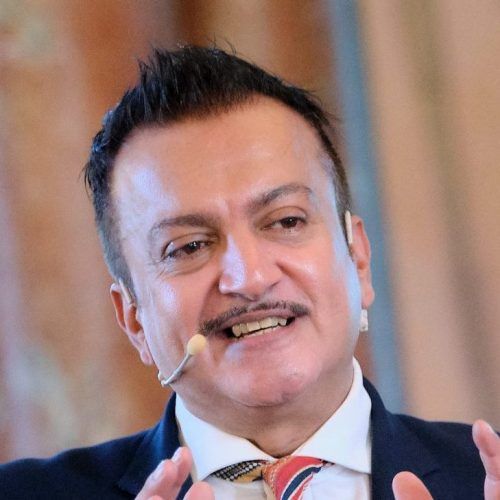
Chief Operating Officer and Chief Spokesperson of Friends of Europe
Prior to joining Friends of Europe, Dharmendra Kanani was director of policy at the European Foundation Centre (EFC). He was the England director at the Big Lottery Fund, the largest independent funder in the UK and fourth largest in the world. Dharmendra has held senior positions in the public and voluntary sectors and advisor to numerous ministerial policy initiatives across the UK.
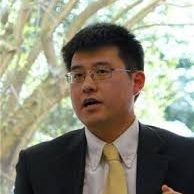
Professor at the Institute of Belt and Road Initiative & Global Governance at Fudan University
Dr. Zhang Xiaotong is a veteran professor and researcher whose major research interests include economic diplomacy, geopolitics and European studies. Prior to his current role, he was a professor at Wuhan University’s School of Political Science and Public Administration and the executive director of the Wuhan University Centre for Economic Diplomacy. Formerly a visiting scholar at Johns Hopkins University School of Advanced International Studies (SAIS), Zhang has also worked at the US Desk of the Chinese Ministry of Commerce and served as the trade attaché at the Chinese Mission to the European Union in Brussels.

Senior Advisor China and Co-Dean of the Sino German Young Professional Campus
Astrid Skala-Kuhmann is an expert in emerging markets and sustainability issues with a focus on China, having served for six years as GIZ’s chief resident representative and country director there. She later served as GIZ’s Director-General of Global Partnerships – Emerging Economies. In her current capacity, she advises on matters related to China’s Belt and Road Initiative. Skala-Kuhmann is also co-dean for the “Zukunftsbrücke” (Sino-German Young Professional Campus) and a supervisory board member of Lenzing AG and Semperit AG, Austria, both stock-listed with global scopes.
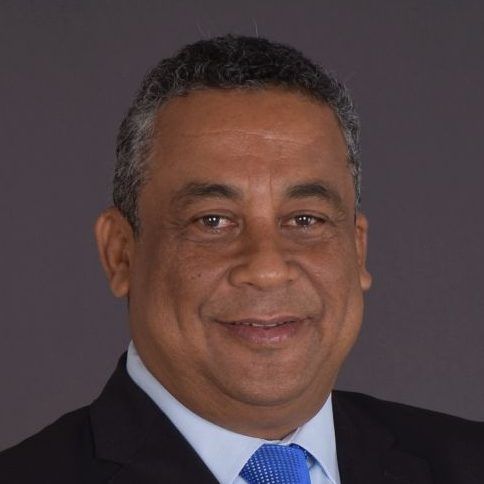
Secretary-General for the Port Management Association of Eastern & Southern Africa (PMAESA)
Alongside his role at PMAESA, Andre Didace Ciseau is also the current Executive Secretary for the Pan-African Association for Port Cooperation (PAPC). Ciseau brings with him extensive experience in the maritime and ports sector arising from his tenure as Chief Executive Officer of Seychelles Ports Authority (SPA), as well as his focus on the development of the Blue Economy for Seychelles by working with the Depart of the Blue Economy established by the Government of Seychelles in 2015. He also served in the Seychelles People’s Defence Force (SPDF) with a strategic role in the development of the Seychelles Coast Guard.
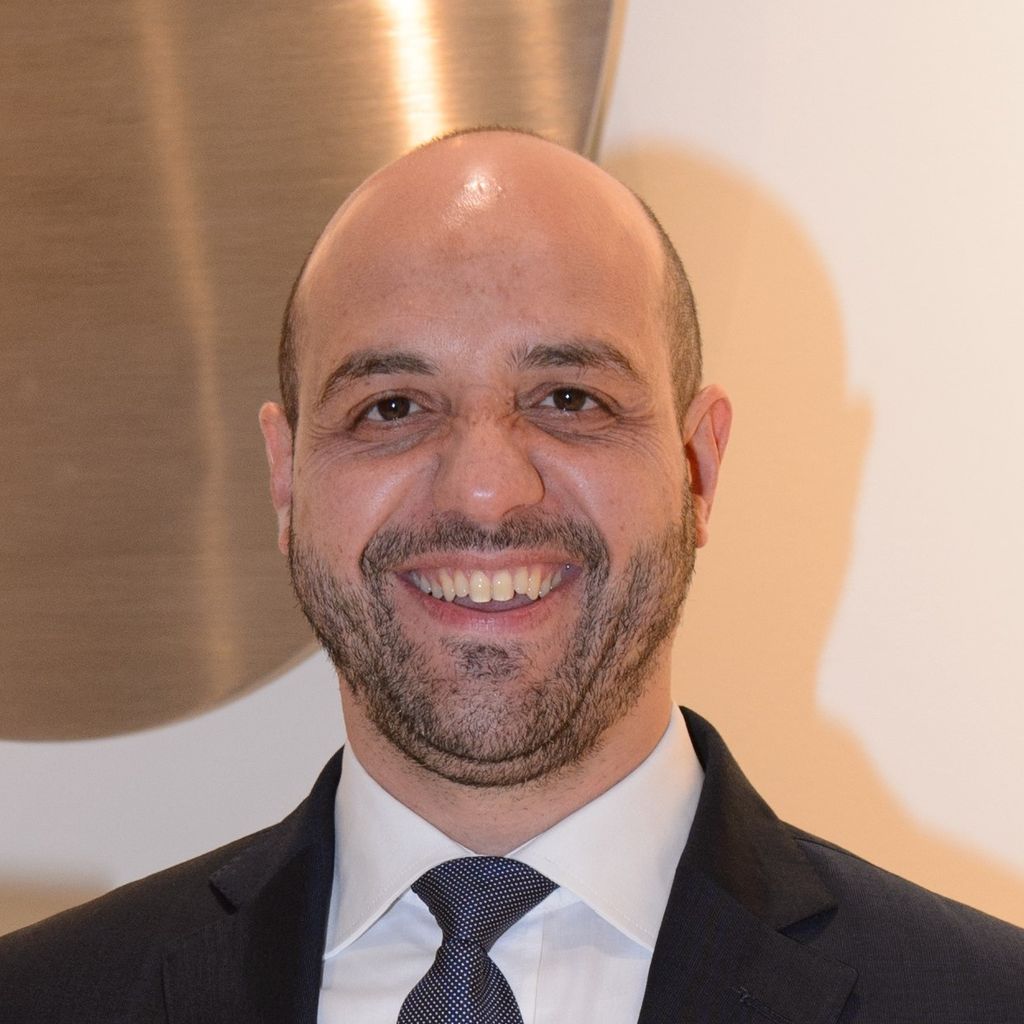
Principal Banker of the Infrastructure Turkey, Middle East and Africa department at the European Bank for Reconstruction and Development
Hany Nabil Mostafa oversees a number of key transport and infrastructure projects for the European Bank for Reconstruction and Development (EBRD), with the majority of his activities concentrated in Egypt. In his current role, he engages with key policymakers on policy dialogue in relation to the development of the transport sector in the country. Prior to joining EBRD, Mostafa worked in the investment division of a leading private sector construction firm. In this role, he participated in the development of a number of major investments in the water and power sectors under different public–private partnership schemes. Mostafa is a UK CIMA Chartered Management Accountant.
Activities
Europe-China Forum
Next event In person & livestreamed

- Area of Expertise
- Global Europe
Trading tariffs and trade as a geopolitical tool
Past event

- Area of Expertise
- Global Europe
From aid to investment: shaping Europe's global role in a changing world
Past event Online

- Area of Expertise
- Global Europe
Future Africa-Europe High-Level Forum
Past event IN PERSON & ONLINE

- Area of Expertise
- Global Europe
Trump's betrayal of the world's poor is Europe's opportunity
- Category
- Frankly Speaking
- Author
- By Giles Merritt
Policy Voices | #Throwback: UNRWA’s Jonathan Fowler on Gaza: “It is a…
- Category
- Podcast
- Area of Expertise
- Global Europe
DRIVE Impact Initiative final report
- Category
- Event Reports
- Area of Expertise
- Global Europe
Europe’s blackouts call for a NATO-level response
- Category
- #CriticalThinking
- Author
- By Maurizio Geri

- Area of Expertise
- Global Europe

- Area of Expertise
- Global Europe

- Area of Expertise
- Global Europe

- Area of Expertise
- Democracy
Continue
the debate on
- Debating Europe
